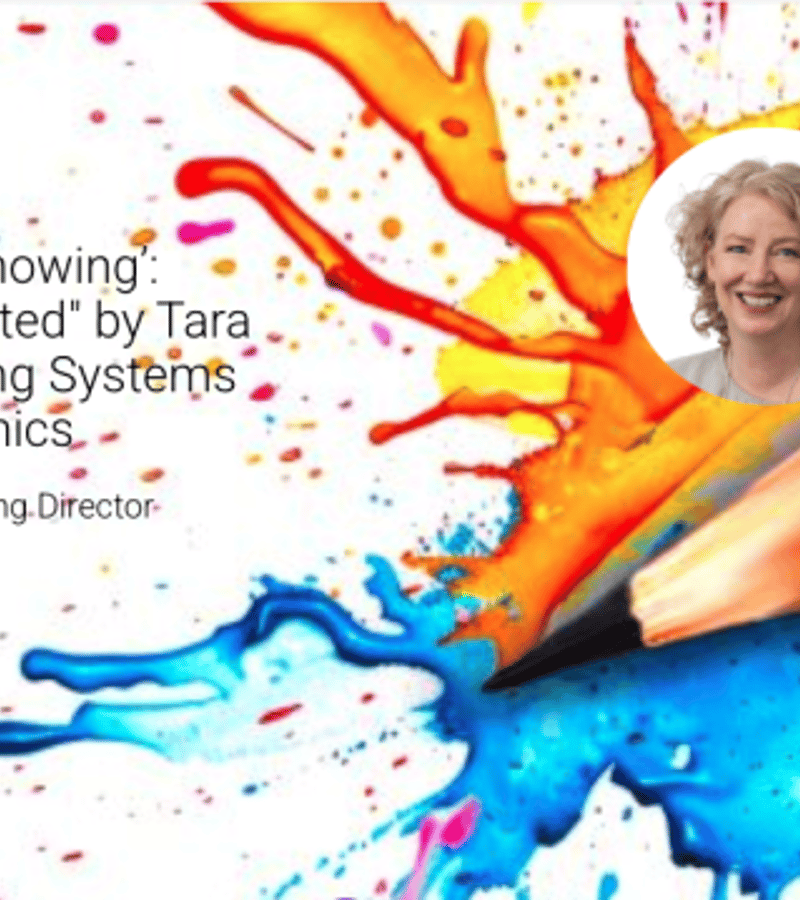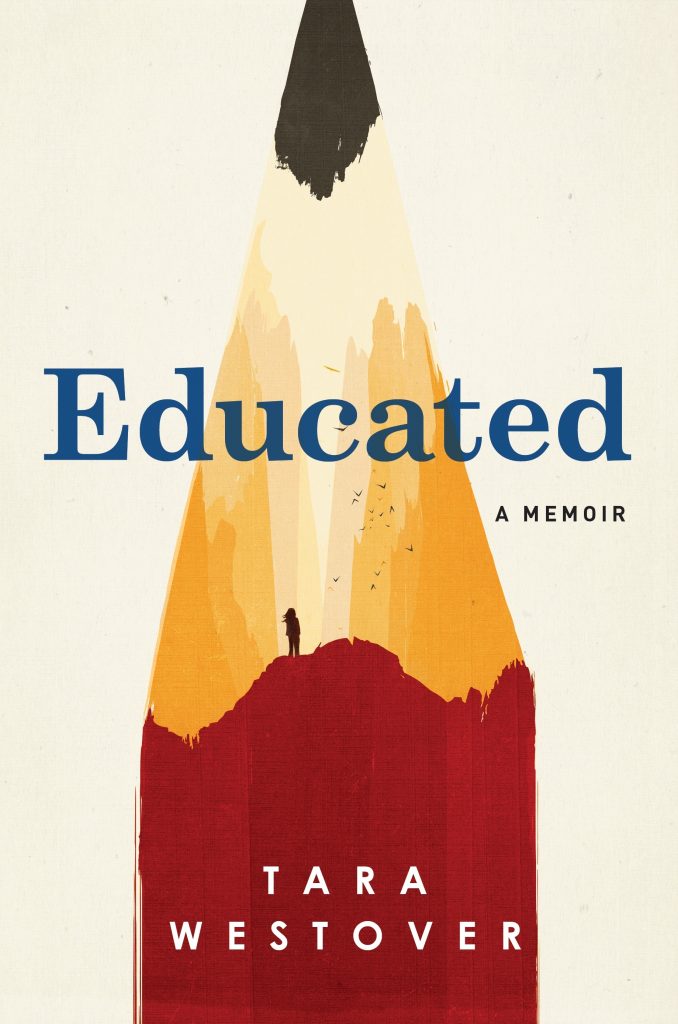Embracing ‘not knowing’: Reflections on Educated by Tara Westover

Embracing ‘not knowing’: Reflections on “Educated” by Tara Westover and studying Systems Psychodynamics
Helen McKelvie, Consulting Director

Over the summer break, the highlight of my holiday reading was Tara Westover’s confronting memoir, Educated. A global bestseller published in 2018, I was late to join the millions who have been affected by her remarkable story of resilience, and deeply moving exploration of the transformative power of education. I found the unflinching account of growing up in a strict, survivalist family with no formal schooling, enduring physical danger, abuse, and neglect both hard to read and to turn away from. For me Tara’s reflections on breaking free from her father’s overpowering worldview to seek knowledge beyond her upbringing, including earning a PhD from the University of Cambridge, hold profound lessons about the nature of learning.

Embracing ‘not knowing’: Reflections on Educated by Tara Westover
Accepting ‘not knowing’
Educated by Tara Westover illustrates a universal truth: to learn, one must first accept not knowing. Tara’s upbringing in rural Idaho, where her father’s beliefs about religion, the medical establishment, and government dominated every aspect of family life, left little room for questioning or exploring alternative perspectives. Her path from unschooled child labourer in her father’s scrap yard to a best-selling author and historian with a PhD was driven by intellectual curiosity and determination that led Tara to confront what she didn’t know—and to embrace the uncertainty and discomfort that come with the experience of not knowing. Her story shows that the first step in acquiring knowledge is to accept the limits of one’s current understanding.
The edge of learning
In our field of systems psychodynamics Wilfred Bion’s concept of “the edge of learning” provides a valuable lens for understanding this process. Bion suggested that true learning occurs at the boundary between the known and the unknown—a space where uncertainty and discomfort are inevitable. He called for learners to adopt “negative capability,” a term he borrowed from the poet John Keats, which refers to the ability to remain curious and open in the face of ambiguity. For Bion, this is the space where new thoughts and insights can emerge. Not an easy space as it requires a willingness to tolerate the anxiety of not having immediate answers.
Systems psychodynamics education
This idea—the necessity of “not knowing”—is central to both Tara’s journey in Educated and the work we do in systems psychodynamics education. At NIODA our students are experienced professionals, managers, and consultants skilled in their different fields and accustomed to being experts, relied upon for answers and solutions. However, often it’s not having the answers that motivates their desire to learn about systems psychodynamics. Our students come to us frustrated with trying to make sense of chaos, and what seem like irrational behaviours from otherwise sensible work colleagues and clients. They have a desire to help create healthy and productive workplaces, but need help to know how. In our course we look at organisations as complex systems and explore what might lie beneath the surface to help make sense of confounding workplace dynamics and blockers to change. We encourage students to consider what might be happening at an unconscious level, both within themselves and in the systems they inhabit. This requires a willingness to step back from certainty and tolerate the ambiguity of incomplete answers on the way to finding more effective ways to collaborate and create new ways of working.
Learning through curiosity and humility
Embracing the vulnerability of ‘not knowing’ can feel profoundly unsettling. Especially for seasoned professionals taking up a student role, there can be a tendency to put pressure on themselves to ‘already know’. It requires unlearning the impulse to dismiss discomfort or uncertainty and instead approaching these feelings with curiosity. I had the experience as a student at NIODA and also as a class teacher, a new role I took up after completing the masters in 2017. It was enormously relieving coming to understand that my teaching role at NIODA is not all about having the answers and imparting them, but more about holding the space for learning to occur. I no longer panic about not knowing enough, rather lean into the uncertainty, curious and trusting that the learning happens with the students. It’s often not comfortable, but ultimately very rewarding.
The NIODA courses are academic, with plenty of reading, but so much of the learning is experiential, where what happens in the ‘here and now’ of the class and in the small group work with organisations makes the difference to understanding. A critical component of this involves paying attention to feelings and free associations that arise in the classroom and in professional settings. These often-overlooked aspects of experience can offer valuable insights into the unconscious dynamics at play. We start to see the patterns in behaviors, and understand them as defences and ways of coping with the anxieties that are inherent to the work being done. By contemplating what isn’t immediately visible or understood, students develop a deeper awareness of themselves and the systems they work within. This dual focus helps develop a more nuanced understanding of leadership, decision-making, and group dynamics. Importantly, it equips leaders and managers to approach complex challenges with humility and curiosity rather than relying on pre-existing expertise.
Courage to learn through experience
One of the key takeaways from Educated is that learning requires courage—the courage to confront what is unknown, to question deeply held beliefs, and to embrace change. Tara’s story is a testament to the transformative power of education, not just in an academic sense but in a profoundly personal and relational sense as well. Her willingness to engage with “not knowing” allowed her to redefine herself and her place in the world.
Similarly, at NIODA we support students to step into the discomfort of “not knowing,” and in doing so open the door to new possibilities, insights, and ways of being.
For those interested in exploring these ideas further, I encourage you to visit NIODA’s webpage, where you can learn more about our courses and approach to education. If you are an experienced professional seeking to uncover what’s really going on in yours or your client’s workplace, we welcome you to join us on this journey of discovery.
Helen McKelvie, Consulting Director, Academic Staff Member, PhD Candidate
February 2025
Embracing ‘not knowing’: Reflections on “Educated” by Tara Westover and studying Systems Psychodynamics
Embracing ‘not knowing’: Reflections on “Educated” by Tara Westover and studying Systems Psychodynamics
Related insights

Leading from the Middle: Power, Reality, and the Courage to Work Together
What if the real power in your organisation sits in the middle — but goes unused? Mark Carney's recent Davos speech on middle powers sparked a reflection on something we see repeatedly: middle leaders orient up and down the hierarchy, but rarely sideways. Yet the middle holds unique potential to integrate, coordinate, and strengthen the whole system.

Reflections on completing a Masters

Revelation, Not Salvation
Salvation is about being rescued from difficulty. It’s the quick fix, the ready-made model, the externally imposed solution. Revelation, on the other hand, is about discovery.
